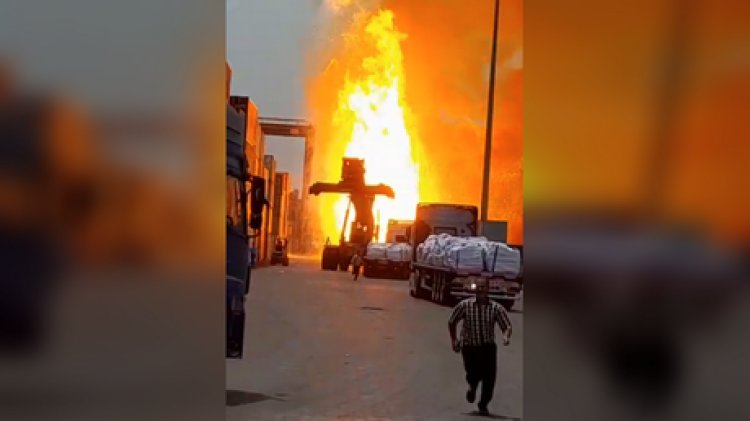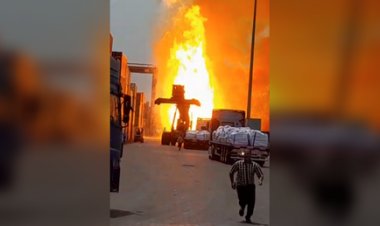Number of fatalities rises in suspected "chemical" explosion in Iran
At least 14 individuals lost their lives and hundreds sustained injuries due to an explosion and fire at the Shahid Rajaee port, Iran's largest and most modern port, which serves as a crucial hub for oil and petrochemical exports in the Strait...

The explosion occurred at the Shahid Rajaee facility in Bandar Abbas at approximately 11:55 am on Saturday, resulting in injuries to over 750 people. Interior Minister Eskandar Momeni reported by Saturday evening that 300 victims remained hospitalized and the confirmed death toll had risen to 14.
Firefighters continued to combat the blaze late into the night. Authorities secured the area and surrounding customs facilities to conduct an investigation, suspecting that inadequate chemical storage may have contributed to the incident.
“The cause of the explosion was the chemicals inside the containers,” noted Hossein Zafari, a spokesperson for Iran’s crisis management organization, in an interview with Iran’s ILNA news agency. He added, “Previously, the director general of crisis management had given warnings to this port during their visits and had pointed out the possibility of danger.”
However, the precise cause had not been officially established, with government spokesperson Fatemeh Mohajerani cautioning against premature conclusions while speaking to IRNA.
Iranian media reports varied regarding the incident’s details; some indicated that the initial explosion occurred at an administrative building, while others suggested the explosion might have originated from a gas tanker. A video circulating online appeared to show the epicenter of the blast at the freight container stockpile.
Additional footage demonstrated thick smoke rising from the port area, prompting authorities to evacuate nearby neighborhoods and temporarily halt port operations.
In response to air quality concerns, Iran’s health ministry declared a public health emergency in Bandar Abbas, alerting residents to the potential release of hazardous pollutants, including ammonia, sulfur dioxide, and nitrogen dioxide. Residents were advised to remain indoors, avoid outdoor activities, and keep windows closed, and vulnerable populations—such as those with respiratory or heart conditions, children, pregnant women, and the elderly—were recommended to wear masks.
Several nations, including the United Arab Emirates, Oman, Saudi Arabia, Iraq, Japan, and Russia, have extended their condolences in response to the tragedy. Saudi Arabia expressed its willingness to provide any needed assistance to Iran, while the Russian embassy in Tehran indicated it would swiftly communicate any request from Iran for help to Moscow. Iraq’s foreign ministry also offered support, with Prime Minister Mohammed Shia al-Sudani directing officials to coordinate aid efforts with Iranian authorities.
Iranian President Masoud Pezeshkian expressed condolences to the victims' families and mandated a thorough investigation. Additionally, Iran's Prosecutor General instructed the provincial office to “deal with the possible perpetrators of the incident with utmost seriousness.”
The Shahid Rajaee port, located strategically on the Strait of Hormuz about 1,050 kilometers southeast of Tehran, was previously targeted in a suspected Israeli cyberattack in 2020. While Iranian officials have not attributed Saturday’s incident to any external party, Iranian Foreign Minister Abbas Araghchi had recently cautioned that “our security services are on high alert given past instances of attempted sabotage.”
Olivia Brown for TROIB News












